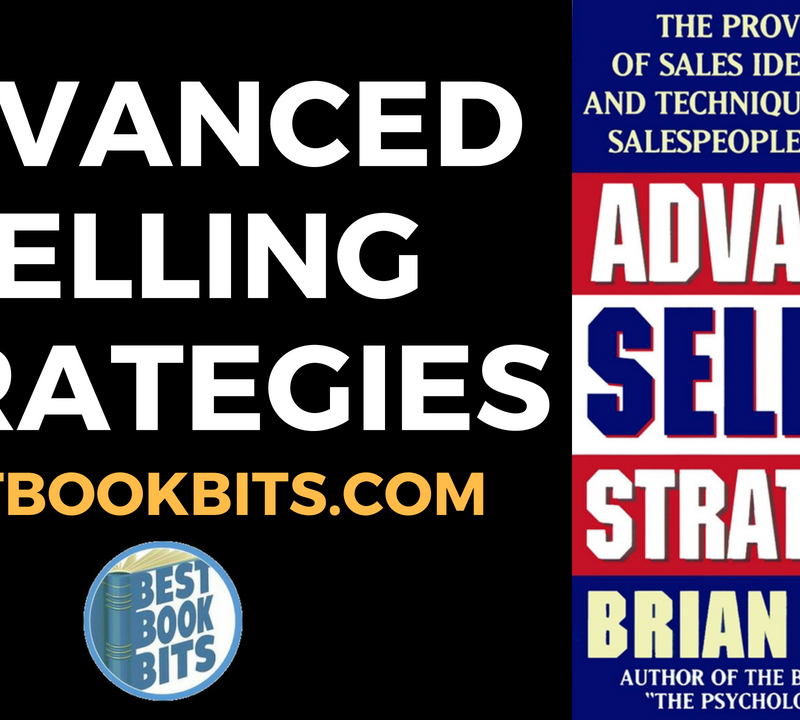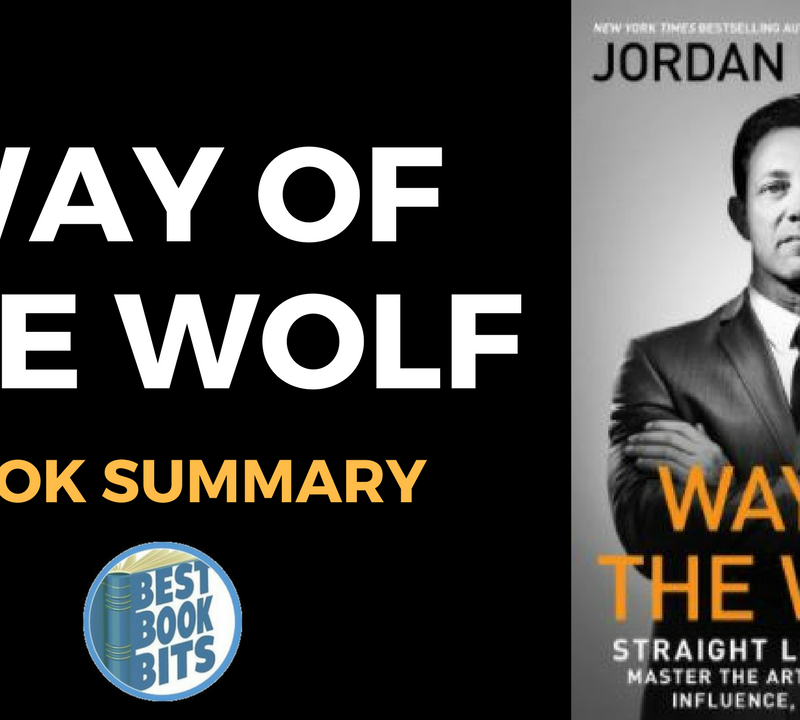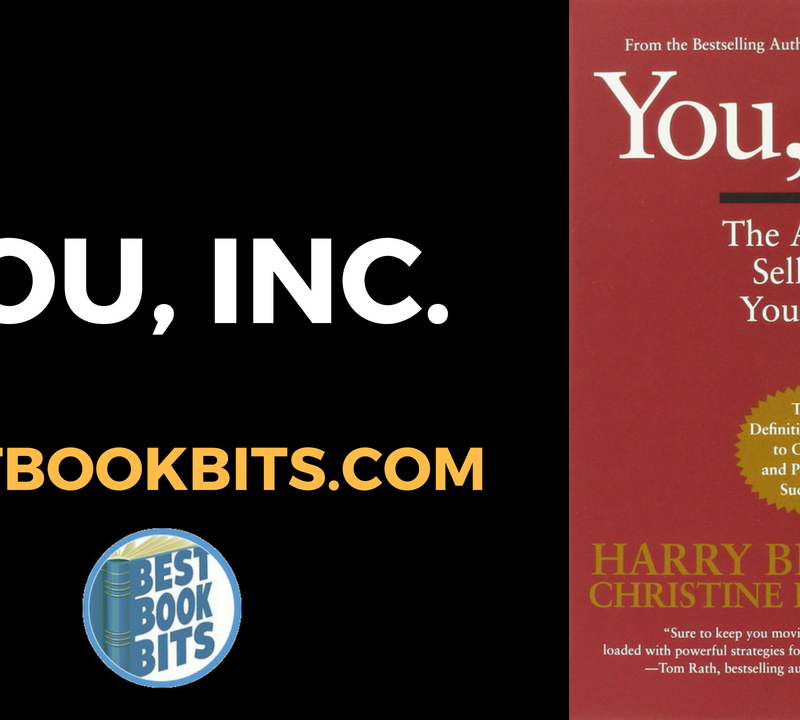♣ CLICK THIS TO STOP TRYING TO ACHIEVE YOUR GOALS BY YOURSELF AND BE COACHED TODAY HERE
♥ CLICK THIS TO DOWNLOAD THIS FREE PDF SUMMARY HERE
♦ CLICK THESE FOR THE FOLLOWING Book | Summaries | Course
YouTube |Spotify | Instagram | Facebook | Newsletter | Website
We all know someone who has enjoyed extraordinary personal or professional success in their life: a classmate from high-school who has become a corporate executive, a childhood friend who has traveled the world in support of humanitarian causes, a legend with more sales than anyone in the history of the company. These ambitious individuals are often characterized as always having been “go-getters.” In Go-Givers Sell More, Bob Berg and John David Mann propose a new model for the successful salesperson; one that creates value, touches peoples’ lives, builds networks, is authentic, and stays open to challenges and new ways to tackle those challenges. In so doing, the salesperson’s focus shifts from trying to get something from a potential client to giving them value in their time and effort in building a genuine, personal connection. Go-getters may survive and even prosper, but to fully thrive, real-estate agents must be go-givers rather than go-getters, a much more rewarding—and profitable—way to conduct their personal and professional lives.
THINK POINT #1: True Worth Lies In Giving Value to Others. Over the past few years, the world’s economy has hit virtually every sector of business hard. In creating value for others, you create your own, recession-proof, thriving economy. When your economy’s currency is value, not just results and money, you are in complete control of the balance in the account, by creating value yourself instead of waiting on results and money to come from others’ decisions. In creating value, sales and money will happen on their own, as people are drawn to those who are valuable to them. Making yourself valuable to others, including clients, includes being consistently excellent by ‘investing yourself consciously in everything you do’ (p. 15), paying attention to even the smallest details, empathizing with the clients’ position, and truly appreciating others for what they bring to the table. When you create value by appreciating others, ‘your value appreciates and when you don’t, it depreciates’ (p.18).
THINK POINT #2: Don’t Just Make Money or Sales, Make Connections. For most individuals and businesses, the motivating factor in selling themselves (in job interviews and presentations) or their product (in pitches to clients) is to make money. Instead, focusing on making genuine personal connections increases your career and life’s value and your impact on the world by touching people’s lives. In so doing, you see the client for more than just a prospective sale; you see them as an opportunity to increase your own positive impact on the world, an infinitely more valuable commodity than monetary compensation. Building rapport with others involves a bit more than just finding common ground through the classic sales formula FORM—Family, Occupation, Recreation, and Message. Seeing the client as a person and being genuinely curious about his/her life breeds camaraderie and when you both become familiar with each other, you form a type of family. When this connection is forged, the sale and financial compensation will easily follow, because your focus was connecting with another person, not making money from a prospective client.
THINK POINT #3: The Art of Building Networks through Influence. It’s no secret that successful salespeople build networks of clients that lead to other potential clients, and so on. Joe Girard, the greatest salesperson in the world according to the Guinness Book of World Records, says that everyone has about 250 people who would show up to their wedding or funeral. Following this logic, when you connect with one person, you actually grow your network by 250 people! This one new connection multiplies your impact by spreading what Stephen R. Covey calls your ‘moral authority’ far and wide, naturally resulting in status and success. This authority is built on your most valuable, but fragile, asset—reputation. Being known as a trustworthy, competent, sincere individual is built on asking great questions resulting in positive, morally influential experiences with people over time. Creating value in others’ lives with your personal investment of your time, interest, and eventually, if it comes up, the benefits of your product, results in the greatest opportunity they will want to know more about and even purchase your item, subscribe to your idea, or even hire you.
THINK POINT #4: Authenticity Attracts People into Your Comfort Zone. Traditional sales techniques encourage stepping outside your comfort zone to reach out to prospects, convince others of your product’s value, counteract objections, and finally, close the deal by landing their (perhaps unwilling) surrender to your persuasive selling prowess. A vastly more effective strategy to benefit from the connection you have made with the client is to be authentic in your interaction, telling stories from your own life that relate to their experiences as well. This draws them into your comfort zone, pulling them over to share your perspective on things, including how your product adds value to their lives with its many benefits. Rather than presenting with an anxious, me-versus-them mentality that focuses on yourself and renders you ineffective against their objections, offer a gift to your audience: engaging conversation that reflects a shared concurrence on the greatness of what you bring to the table. The willing customer will not be closed on the deal, but will have decided to share your perspective on your product because you invited them in with your authentic voice.
THINK POINT #5: It’s Not Better to Give Than to Receive. You may be asking, but if it isn’t better to give than to receive, what is all this about being a go-giver without expecting returns in-kind? Being receptive to the rewards of giving and being gracious and appreciative when they do come after the fact is different than expecting rewards as a condition for giving in the first place. Deeply ingrained in our culture is the notion that self-interest and altruism are mutually exclusive, as Nicole Miller describes, “I was brought up with a belief that that there are two types of people in the world. There are people who get rich, and there are people who do good . . . you’re one or the other, you can’t be both.” Genuinely successful people see generosity an integral part of their success, and receiving as an integral part of generosity, joining in with the flow of give and take, financially, professionally, and personally. In giving, you receive, cause and effect, giving your time, effort, or money causes you to receive personal satisfaction, the life-long client, the sales record of your life.
♣ CLICK THIS TO STOP TRYING TO ACHIEVE YOUR GOALS BY YOURSELF AND BE COACHED TODAY HERE
♥ CLICK THIS TO DOWNLOAD THIS FREE PDF SUMMARY HERE
♦ CLICK THESE FOR THE FOLLOWING Book | Summaries | Course
YouTube |Spotify | Instagram | Facebook | Newsletter | Website













